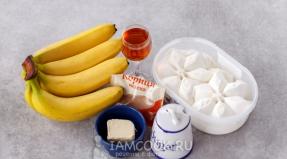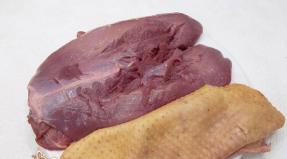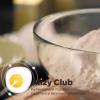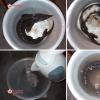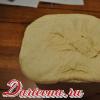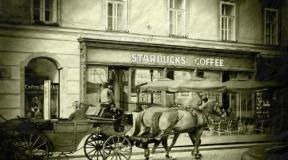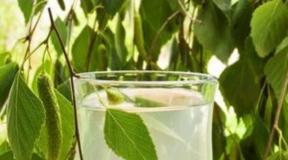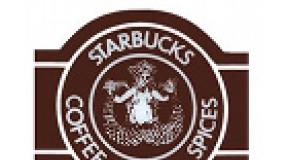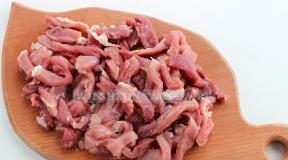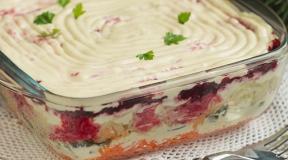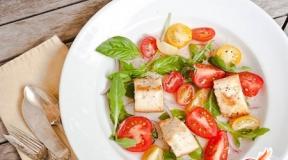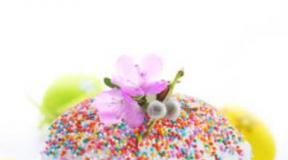What is the best container to store homemade wine in? How and where to keep wine from aging and spoilage
Wine is a long-known drink, the production technology of which was developed by mankind thousands of years ago. It is served at the table both on holidays and on ordinary days, presented as an exquisite present. Because of this popularity of the drink, many questions arise. Is it possible to store wine for a long time at home? How to preserve the taste of the drink if the bottle has already been opened? You will find answers to these and other relevant questions in this article.
Source: depositphotos.com
What affects the shelf life of wine
In the world, new technologies for making wines are being created all the time, more perfect tastes and aromas are being born. Wine is a living product with constantly changing properties. Expensive varieties are stored for decades and only get better, cheaper varieties lose their freshness after 2-3 years. Why is this happening? The shelf life of wine depends on the following factors:
- lighting mode;
- air humidity;
- temperature parameters;
- quality of raw materials;
- grape sort;
- degree of strength;
- container material.
In accordance with the age and allowable storage period, the wine is divided into several groups: young, unaged, aged, vintage, collection. The shelf life of a drink is directly related to its strength and color: fortified red wines are stored longer than dry whites.
What are the lighting requirements?
Lighting mode plays an important role in long-term storage of wine. Intense artificial or natural lighting activates adverse chemical processes. Ultraviolet contributes to the oxidation of organic substances contained in wine. The drink, standing in the sun, becomes tasteless or acquires a rotten smell. Tinted glass provides only partial protection, so the storage location must be completely dark.
If you store homemade wine in clear glass containers, cover them with a towel or blanket. By opening the cabinet or pantry doors, the wine will be protected from light exposure.
How important is air humidity?
If the humidity is too low, the cork dries out - it loses its tightness and allows the wine to oxidize. In damp rooms, mold quickly develops, unpleasant odors spread, which are absorbed by the drink, even if the container is tightly closed. Excessive humidity causes deformation of the paper label, and the bottle becomes unattractive. The recommended range of air humidity in the room where the wine is stored is 60–80%.
Wine storage temperature
At what temperature should wine be stored? It must be remembered that cold slows down the natural processes that occur in the drink. The heat causes fermentation, the wine ripens faster and spoils untimely. The optimum storage temperature for wines is +10…+18 ℃. It is very important not to allow a sharp change in this parameter: the wine reacts negatively to such changes.
Wine storage area
We figured out the parameters of the microclimate, now we will try to answer the question of where to store wine. Residents of private houses place bottles in cellars and cellars. The best places for storage in a city apartment are a dark pantry, a niche under the windowsill, shelves in the hallway or dressing room.
 Source: depositphotos.com
Source: depositphotos.com
Bottles are best kept in a horizontal position. The constant moistening of the cork from the inside eliminates the risk of oxygen entering the container: the wine does not oxidize and retains freshness longer. Lay the bottles label side up so that they do not deform when they come into contact with the surface of the shelf.
Wine bottles should be stored in a horizontal position: this way the cork is preserved much better; it does not dry out and does not allow oxygen to penetrate inside.
Do not place wine near products with a strong smell. A corked bottle seems to be airtight, but it is not quite so. The cork is made from a natural material that allows the wine to breathe, but at the same time prevents oxidative processes.
Ensure good ventilation in the room, periodically open the doors of a closet or pantry for a few minutes. The air should not be stale, otherwise the wine will acquire a stale taste.
At the factories, the product of winemaking is stored in special cellars. Collectors use the same method. The wine cellar, located in the ground, is ventilated through special openings. The optimal temperature is maintained in a natural way: the function of thermal insulation is performed by a thick layer of soil. The cellar provides optimal lighting conditions. Natural finishing materials help maintain the required level of humidity.
 Source: depositphotos.com
Source: depositphotos.com
How to store homemade wine?
Many people are involved in making homemade wines. Serving such a product to the table, the owners can be sure of its quality and natural origin. To taste, some wines made by craftsmen are not inferior to branded varieties. A product produced at home is stored in the same way as store-bought wine - under similar parameters of temperature, humidity, lighting.
 Source: depositphotos.com
Source: depositphotos.com
Large volumes of wine are best stored in oak barrels. However, such containers are rarely used in private households. Home winemakers are accustomed to storing wine in dark glass bottles with cork stoppers or jars with screw caps.
Wine cabinet
If you are serious about home winemaking, we recommend purchasing a special wine cabinet. Also, this equipment is used for long-term storage of expensive varieties of wine. The cabinet is equipped with an automatic climate control function. The optimal microclimate is maintained without human intervention. The wine is stored in ideal conditions with strict observance of temperature, humidity, lighting.
 Source: depositphotos.com
Source: depositphotos.com
Constant air circulation is provided thanks to the built-in fan. There are models with natural ventilation, equipped with a carbon filter. Vibrations of the refrigeration compressor are compensated by special devices; the cabinet body is sheathed with heat-insulating material. Some models of wine cabinets have several temperature compartments: for storing wines, for cooling them before serving, for heating drinks to room temperature. There are also compact cabinets for a small number of bottles. Such equipment can be built into the kitchen set.
How to store open wine?
Often you have to think about where to put the uncorked bottle. Is it acceptable to store wine that has already come into contact with air? No, just for a very short time. After uncorking the bottle, the processes of oxidation of wine begin, it loses its rich taste and aroma, or, in other words, it runs out of steam.
 Source: depositphotos.com
Source: depositphotos.com
To slow down this process a little, close the container tightly with a cork and store it in a refrigerator or other dark, cool place. If you throw away the cork, cover the bottle with a piece of polyethylene and secure with a rubber band. You can also use special silicone plugs - they can be purchased at specialized stores. Under these conditions, sparkling wine will lose its freshness in a day, dry - in three days, fortified - after a week.
Can wine be stored in the refrigerator?
The refrigerator is not recommended for long-term storage of wine for several reasons. Firstly, the temperature in the refrigerator is too low, at which the wine loses its rich taste. Secondly, the constant vibration of the shelves during the operation of the compressor adversely affects the properties of the drink. The refrigerator is suitable only for short-term storage of wine in an uncorked bottle (no longer than a day).
 Source: depositphotos.com
Source: depositphotos.com
wine feature
Bottles of wine are not recommended to be moved from place to place, shaken, transported in vehicles. It is advisable not to touch the containers at all until the moment of serving. Wine loves peace and reacts negatively to fluctuations, vibrations, shaking. In collection wine cellars, this rule is so strictly observed that for years they do not remove dust and cobwebs from bottles.

People who are involved in the evaluation of grapes, designing plantations and organizing the distribution of wine products are called oenologists. Without them, the most expensive and prestigious brands would not have gained their fame. From professional consultants, we learned everything about wine and, in particular, whether wine can go bad and how to avoid it. Consider how to properly store wine at home.
How to store wine - terms, temperature, conditions
Thanks to the correct presentation of information in magazines and on Internet sites, consumers learn to choose only high-quality wines. And this is the best punishment for unscrupulous manufacturers. But wine is an unstable product and requires some care in handling. If the storage conditions of wine are violated, the physical and chemical characteristics and properties of the drink begin to change rapidly.
How do you know if wine has gone bad?
You can recognize by the cloudy color and tiny bubbles in the bottle - this is evidence of the beginning of the second fermentation. The taste of spoiled wine is coarse and sharp, reeking of vinegar. The smell of the missing wine revives the images of medical offices. Wine of improper storage will not cause serious harm to health, but it will not deliver the expected pleasure either.
What affects the shelf life of wine?
Consider the key points that to some extent affect the life (shelf life) of red and white wine.
bottle position
The correct position of a wine bottle during storage is horizontal, which improves the organoleptic qualities of the wine. And it doesn't matter if we are talking about storing wine in bottles, barrels, cans or large bottles. The wine must not be subjected to vibration. Those. after buying or preparing wine, bottles must be securely fixed in a wine cabinet, on a rack or shelves with stands in a secluded place where the sun does not fall and the air temperature is moderate.
In bottles that are stored vertically, and this is wrong, the wine dries out faster, the natural cork cracks. The corking of wine ceases to be hermetic. Evaporation takes place.
All sorts of bacteria live in the pores of cortical (vegetable) plugs. And if the capping and storage conditions of the wine have been violated (for example, high humidity), mold may appear on the cork.
If, after removing the protective capsule from the neck of the wine bottle, signs of mold are found, do not throw away the wine. This happens sometimes. You need to carefully remove the cork and check the contents, as a rule, the mold damages only the top of the cork. Most likely, the wine should be normal.

Attention! If you buy wine with corks made of agglomerates or plastic, keep in mind that such wine cannot be stored for a long time. Due to their structure, plastic corks noticeably spoil the taste of wine and do not allow it to breathe, which means that it cannot be fully stored. Therefore, if you choose wine for long-term storage, buy bottles that are stoppered with natural cork. True, one chance in 20 that in a few years the wine will be spoiled by this very cork.
Wine storage temperature
Looking through the latest trends in kitchen design, you can see that wine racks in the interior are a very popular element of decor. At first glance, it seems that all the rules are taken into account: the wine lies in a horizontal position, it is not exposed to direct sunlight. But no matter how original and beautiful these designer racks look, they are not suitable for storing bottles of wine. Due to room temperature. In the kitchen - a room in which the stove and oven are constantly working, it is simply impossible to provide a constant 10-16 degrees.
At what temperature should wine be stored?
According to the rules, you need to store wine at home in a cool place, with a constant temperature without sudden changes.
- Storage temperature of red and white dry wine - 10-12 ° C
- Storage temperature of red and white dessert wines - 14-16 ° C
In the conditions of city apartments, a small cabinet in the kitchen, arranged in the wall under the window, away from radiators and ovens, can become a place for storage. If the organization of a window sill refrigerator is not possible, then it is necessary to purchase a wine cabinet with climate control. Only it will provide ideal storage conditions for wine bottles at home.

The photo shows a refrigerated wine cabinet with shelves Gemlux GL-WC-8W and GL-WC-21С
With built-in cabinets, storing bottled wine at home is very easy. With a lack of free space in the apartment, a small wine refrigerator with a glass display shelf guarantees optimal storage conditions. The built-in wine cabinet can be mounted in a niche of a kitchen island or a rack. Silent and compact equipment will create the conditions of a real French cellar at home and will allow you to lay down drinks made for long-term storage for maturation.
If the desire to create “wine honeycombs” at home is great, then instead of real bottles, designers recommend using dummies. Or a beautiful container of wine that has long been drunk. Examples of designing storage spaces in the photo:

Can wine be stored in the refrigerator?
In ordinary refrigerators, only open wine is stored, which was uncorked, but did not have time to drink. To do this, they are closed with a vacuum stopper and, without loss of quality, they are quietly left for two or three days, but no more.
Firstly, the shelf life of open red wine is no more than 5 days, white - up to 3 days, and sparkling wine - 1 day (expired). The reason for this is the oxidation processes that occur with the access of oxygen, and even if you close the bottle, they do not stop. But, there is a caveat here, dessert and fortified wines, with a high content of sugar and alcohol, can be stored longer after opening - about a week.
Secondly, the low temperature in a household refrigerator (usually + 3-6°C), vibration and extraneous odors will speed up the process.
Unfortunately, even closed bottles cannot be stored in a conventional refrigerator due to low temperature and constant vibration. Shaking damages the preservation of wine.
Can wine be stored on the balcony?
It is forbidden. There are several reasons for this:
winter storage
At sub-zero temperatures, wine on the balcony, loggia can simply freeze. After thawing, frozen wine is not recommended to be taken orally, but can be used for culinary purposes, such as stewing meat or for making sauces.
It is not recommended to store sealed bottles below +8 °C. At low temperatures, precipitation of sedimentary taratrates - "tartar" is possible. Again, such a sediment is useful and valuable for use in cooking. Cream of tartar is added to whipped proteins, actively used for baking meringues.
Summer storage
The temperature inside the glazed balcony can exceed 40 degrees. At best, the heat in a few days will add a touch of alcohol to the drink, at worst, it will turn the wine into vinegar.
The question arises. How, then, is wine stored in restaurants on summer grounds? In the hot season, trust only those establishments where wine is stored not on the open shelves of the bar, but in specially equipped display cases or racks.
The wine menu in some of the larger restaurants resembles a thick fiction book. Flipping through such a wine list is insanely interesting, but it is even more entertaining to find out how all this wine is stored. So, elite establishments never allow themselves to store expensive aged wines right in the hall. To do this, they have basements equipped with everything necessary with a stable microclimate. But on the open shelves of wine houses there is always a place for young wine, red, white and rose. This creates an entourage in the hall and prevents the drink from stale for a long time (young wine is a popular commodity).

At home, if the dimensions of the apartment allow, you can also organize a real storage behind glass.

The photo shows a glass wine room with a thermal cabinet for storing and tasting wines. Being in a cool environment, even at home, the wine continues to breathe and develop.
Wine storage conditions
One of the main factors in the proper storage of wine is darkness. If only because wine is a living drink and, while ripening, changes its qualities throughout the entire aging period. Direct sunlight or too bright light from fluorescent lamps provoke an acceleration of oxidation processes. And if the berry from which wine is made, ultraviolet is vital and useful, then it only harms the finished drink.
Attention! The place for storing wine should be dark, but with natural air circulation.
How does humidity affect the quality of wine storage?
Wine will not lose its nutritional, valuable and gastronomic properties if it is stored in a cellar or refrigerator with a humidity of 50-70%.
High humidity will lead to the formation of mold on corks, and low humidity will lead to the drying of natural cork, which in turn will affect the tightness of the cork of the bottle (air will seep in and the process of wine oxidation will begin).
Keeping track of humidity levels and temperatures in wine storage cabinets or racks is easy with the built-in hydrometer and thermometer.
Wine refrigerators already have built-in systems capable of maintaining not only the desired temperature, but also the level of humidity.
Questions about wine storage that are most often asked at tastings:
How to store young wine?
Some alcoholic beverages do not make sense to store for a long time. So, young red or white dry wine, not clarified, of high quality and not scratched by filter elements, is not hidden in wine cabinets and is not collected. They just drink it. And if you brought home a bottle of fragrant table nutmeg, then do not put it in storage, but take the opportunity and invite your friends. The brightness of a young wine fades quickly. Such is the law of nature. The material was prepared for the site www.site
In the photo, a bottle of Chardonnay is an ordinary dry wine that was bottled without long-term aging and which is not customary to store for a long time.
How long can dessert wines be stored?
Before sending dessert wine for storage, pay attention to the date. The wine is two years old and the shelf life is coming to an end? There is a risk that the bottle was mishandled (stored, transported) and this significantly worsened the quality of the drink. You can no longer keep it in a glass container. It will rapidly degrade, lose its juiciness and fruity freshness, without gaining anything in return.
Dessert wine storage temperature - 14-16 degrees
How to store Madera?
Fortified wine with a recognizable caramel flavor with smoky notes only becomes more refined with time. It's all about the addition of alcohol, because of which the drink does not sour, even if an open bottle is stored for more than six months. Moreover, now on the market they sell specimens that have an exposure of 50-100 years.
It is important! True Spanish Madera cannot be stored upright like other wines. The contents of the bottle may be damaged by contact with the cork, which deteriorates faster than the made wine itself.
The storage temperature of Madeira is 16 degrees.
What can't store wine?
Storing wine in plastic containers is not allowed. Plastic bottles perfectly pass oxygen. As a result, oxidative processes are launched, the wine begins to re-ferment and quickly deteriorates.
Storage of home-made wine is allowed in glass jars for preservation. Provided that they are rolled up not with metal lids, but glass with a silicone seal. Of course, this storage method has significant drawbacks, but if we compare it with storage in plastic containers, it turns out that homemade wine will stand quietly for 3-7 months in glass containers without the risk of oxidation.
Can wine be stored after the expiration date?
Some wines have the potential to only improve their organoleptic qualities with age. They do not require oxygen to mature in the bottle.
But, attention! This statement has nothing to do with supermarket wines. Only Collection wines are subjected to oxygen-free aging, based on the prospects for their development in the bottle over the years. Store-bought wines are generally "not outstanding" and must be drunk within the time frame indicated on the label by the manufacturer.
Where to store wine?
Where is it better - in the basement or a wine cabinet with a refrigerator?
If you live outside the city in a cottage or in a country house, then a cellar lined with natural stone will be an ideal place for storage. It should not have problems with ventilation, humidity and cleanliness.
If there is no cellar-basement, a specialized refrigerator will be an excellent replacement.
Benefits of a wine cabinet:
- the bottles are in a static position;
- the glass door is tinted so that ultraviolet rays do not penetrate inside;
- stable temperature is maintained;
- humidity is not less than 60 and not more than 80%;
- fresh air constantly circulates.
For novice collectors, the best gift would be a multi-temperature wine cabinet. Such a device has several chambers, for each of which you can choose your own climate mode.

Pictured are Climadiff wine cabinets with a simple design, adjustable removable shelves and a precise thermostat. A two-zone refrigerator is designed for 89 bottles, a three-zone refrigerator for 70 bottles.
How to store champagne and sparkling wines at home?
The principles of champagne storage are the obligatory observance of all the above requirements, taking into account that the drink has a short shelf life. Moet & Chandon or Veuve Clicquo will not lose their original taste if, after purchase, they put the bottles in a wine refrigerator with a temperature of 10 degrees.
An open bottle of champagne or sparkling wine can be kept in a home refrigerator for a maximum of 1 day, tightly closed with a vacuum stopper. But there are no guarantees that the wine will not lose its aroma in a day. Therefore, it is better to immediately pour the drink into glasses and not tempt fate.
Storing wine under water
An innovation that you may not have known about yet.
To store wine in sea water at a pressure of about 20 atmospheres at a depth of 20 meters and a temperature of 11 to 15 ° C was invented in Spain. The idea to age wine at the bottom of the Bay of Biscay (northern Spain, Basque Country) came to enologist Antonio Palacios after visiting auctions where amphoras, bottles of wine found in long-sunken ships, were sold for huge sums of money. In the process of research, the scientist had an idea, the implementation of which took a whole year.

At the bottom, under the water column, the bottles are in a horizontal position and are closed with special stoppers, which allow the wine to “breathe”.
The approximate price for a bottle of red, raised to land from the bottom after nine months of storage, is 180 euros.
Wine is the quintessence of pleasure that deserves proper storage. You can create optimal conditions at home even in the simplest apartment.
Wine has been known to mankind for thousands of years. The popularity of this pleasant intoxicating drink does not fade with time. The production of a noble wine is an art and requires a lot of experience. Not everyone who buys it in supermarkets is aware of how storing wine at home can affect the quality of the drink.
Why is it important?
The noble drink has a capricious character. Bottled, it continues to mature, in the process forming its unique taste and aroma. Winemakers and true connoisseurs are sure that improper storage of a wine drink can adversely affect its consumer qualities.
Having purchased or received a bottle of good wine as a gift, you want to save it until a special occasion. Knowing how to store wine will help preserve and improve its taste and aroma, even if some time has passed since the purchase.
The shelf life of a bottled drink is quite long. But does the wine retain its characteristics after opening and for how long should it be consumed? In addition, there is a difference between the purchased bottled drink and homemade grape wine. Following the recommendations on how to store wine at home will help preserve its characteristics and allow you to appreciate the taste of the drink.
Where is the best place to store wine at home?
Previously, a cellar was chosen for storing wine, in which optimal conditions were maintained. And today, if there is such an opportunity, it will be the best option for placing a wine collection. The noble intoxicating drink is afraid of the light, but there is nothing to worry about if you turn it on only occasionally.

The room must be maintained at the right level of humidity, otherwise the taste characteristics of the wine may deteriorate. In addition, from excess moisture, the cork becomes moldy. Excessive dryness is also unacceptable, this will lead to the drying of the cork and the ingress of oxygen into the stored bottle. Humidity between 60 and 80% is considered optimal.
When storing wine at home, it is imperative to maintain a certain temperature regime - no higher than 24 degrees. If this is not observed, the drink may oxidize. The optimum temperature for long-term storage is not higher than 12 degrees. It should be borne in mind that red wine is less sensitive to temperature changes than white varieties.
Air purity is just as important as other storage conditions. The cork in the bottle allows odors to pass through. Therefore, the storage room must be well ventilated.
But where to store wine in a city apartment, because there is no cellar there? To place bottled wine at home, you can use mini-bars or racks - floor, wall or built-in. Whatever the storage, the bottles of the noble drink are placed horizontally.
As for the storage standards for home-made wine, there are also some nuances here. Many, paying tribute to traditions, try to store homemade wine, as they did in the old days, in barrels. It should be borne in mind that not all varieties of wood are suitable for preserving the drink. Proper use of oak barrels.
The temperature at which the drink is stored is important not only for quality characteristics, but also affects its ability to interact with the material of the container. You can store the drink in plastic bottles, but not for long.
Many are interested in whether it is possible to store containers with homemade wine in the refrigerator during the ripening process? It is known that cold, extraneous odors and vibration are detrimental to the quality of wine. It is allowed to keep only an open bottle from the store in the refrigerator, while it must be well closed.

The difference in storage of white and red varieties
In winemaking, there is no significant difference in how to preserve any one of the many varieties of wine. It is imperative that the temperature is consistently cool, the humidity level is maintained and access to ultraviolet is blocked. The shelf life is different - white wine is usually stored less than red wine.
An important condition for maintaining the quality characteristics of a noble drink is the absence of shaking. Frequent movement is undesirable for wine. Not for nothing, in wineries where drinks are stored for a long time, bottles are not even touched. Covered in a thick layer of dust and cobwebs, they ripen as long as required. Therefore, when it comes time to open vintage wine, it pleases with its impeccable taste and aroma.
Storage time after opening the bottle
It is important how long the noble drink after opening the bottle retains its quality characteristics. Drinking open wine is recommended within three days. Storage of an open bottle of sparkling wine should not exceed a day. Immediately after uncorking, the drink interacts with air, as a result of which the oxidation reaction begins. It doesn't stop even when the bottle is closed.
The quality characteristics of open wine are gradually deteriorating. Fortified and dessert wines are stored longer - up to a week. Red should be consumed within five days, white will become unusable after three days. Connoisseurs advise pouring unfinished wine into smaller containers and carefully closing or using it for culinary purposes.

What is the shelf life in a bottle?
Almost all varieties of white wine are not stored for more than three years. The exception is the Chardonnay variety, which, even after two decades, will retain its exquisite taste. Subject to the rules for storing red wine, its properties will not deteriorate even after 10 years. But there are exceptions here too: no matter how long it would take to store bottles with Bordeaux or Burgundy varieties, their characteristics will only improve even after a hundred years.
White and sparkling wines at home require a lower temperature regime. The shelf life of the wine depends on how homemade wine is stored. It is better preserved not in plastic, but in glass bottles. Subject to all other standards, homemade wine will retain its characteristics for up to 5-7 years.
Wine can be compared to a living being. Starting from the moment of birth, this noble drink constantly changes its characteristics. Only following the recommendations on how to store wine in bottles can guarantee real pleasure from drinking this drink.
Attention, only TODAY!
The tradition of making homemade grape wine is rooted in antiquity. Nowadays, a low-alcohol drink made with one's own hand is a source of pride and a reason for many holidays.
How to store homemade wine depends on what the owner wants to get as a result. There are a huge variety of grapes, and each makes a unique drink. Both the degree of maturation of raw materials and the method of preparation play an important role. How to properly store homemade wine is decided depending on the grape variety, its quality and, most importantly, on how many years and under what conditions it will be aged.
Overdue or not?
The shelf life of homemade wine is usually a year. If the owner wants to make a perennial wine, he creates special conditions for its aging and storage. How to store long-term purchased wine in a closed bottle,. And about how to store in the open -.
It is impossible to say which wine is better. There is a charm both in seasoned and in one-year-old. After six months, the taste of the annual wine fades, but it is still usable. If it is stored for more than a year, then it becomes aged, its taste improves.
Such wine is not considered of high quality, but it is quite possible to use it for food, it is not spoiled. The aging of an intoxicating drink is a special process, long and painstaking. Only as a result of such a process can a high-quality long-term product be obtained.
We answer the question: why does wine “play” for a long time?
If your homemade wine ferments too long, you've probably messed up the brewing process. Perhaps it is fermenting at too high a temperature or the wort is not removed in time.
Which is better: glass or plastic?

Wine is "afraid" of sunlight - choose a dark container for its storage
Is it possible to store wine in plastic bottles - a question that has been widely discussed over the years. After all, it is convenient to keep liquids in an unbreakable container.
The plastic itself is different. Bottles use food raw materials, which are not harmful to products. Wine in plastic containers can now be found even in the store.
Do you know that…
Glassware is better for wine than plastic. Therefore, a well-aged, especially collectible drink will not be poured into plastic. In such dishes, it will not be possible to preserve the unique taste of collection wine.
How much and where to store?
The question of how long homemade wine can be stored is usually not raised, because it is a product designed to be consumed throughout the year. All year and even longer it remains usable.
Where to store is a more important question. The best place for homemade wine is a wine cellar. There you can store wine in any container:
- in barrels;
- bottled;
- in banks.
- Do not store the drink in rooms with high humidity, for example, in the bathroom.
- Do not keep it near heating appliances. Wine stored at too high a temperature can turn into.

Follow the basic storage conditions to preserve the taste and benefits of the drink
Do you know that…
Properly prepared natural wine can be stored at room temperature. It is not necessary to keep it in the refrigerator. If the product spoils at room temperature, it is most likely not natural.
Quality or not?
The main rule for making wine is no additives. All the necessary substances are contained in the grape itself. An intoxicating drink is obtained as a result of the fermentation of grape juice.
- Adding an additional starter (for example,) is unacceptable. Many other drinks are prepared on sourdough, but not wine.
- It is also unacceptable to add preservatives and dyes. Unfortunately, in our time, home winemaking has adopted the "traditions" of the industrial one - it has begun to use both.
In natural homemade wine, microorganisms beneficial to humans develop during the fermentation process. Other harmful ones, such as bacteria that cause putrefaction, are suppressed. That is why wine can be stored for a long time, while the content of medicinal substances in it is even greater than in grape juice.
If the wine is sour, it turns into wine vinegar. Natural wine vinegar is no less useful than apple cider vinegar. Of course, provided that it is really natural. It will be very sour, but aromatic and suitable, for example, for marinating meat.
We answer the question: why does homemade wine foam?
Wine foams during fermentation - this releases carbon dioxide. During this period, it is important to remove the released gas. To do this, use a water lock. After the end of fermentation, the wine stops foaming.
If you are in a country where they make homemade wine, be sure to try it. In each of these countries, the taste of wine will be different, and it will be different for different owners. Such a tasting will help you understand the soul of these countries. They say that there is no good and bad wine, there is one that you like.
Winemaking is a rich and ancient tradition. But it is in those countries where they drink a lot of wine that the problem of drunkenness is not acute. Why? Because wine is a natural product, and wine drinking is a whole culture.
Store properly and be healthy!
Have you read the article? Please give feedback:
- Rate the article and share with your friends on social networks if it was useful and you learned something new.
- Supplement the material by writing a comment if you have your own experience in storage or disagree with something.
- Ask a question to our specialist by clicking the button below and get a qualified answer if you did not find it in the text.
Thanks in advance! It is important for us to understand that we are not working in vain.
Many believe that 100 ml of wine a day will only have a positive effect. It will relieve stress, improve blood circulation, and also improve the general condition of the body. But in order to preserve all the aroma, taste and useful properties, it is necessary to create special conditions under which the product can be stored.
Factors affecting shelf life
The capriciousness of a wine drink requires special attention. The quality may depend on light, temperature, humidity, sudden changes in heat.
Even the packaging material can be reflected. Often used plastic, tetrapack. But only the highest quality and most delicious are bottled in special glass bottles.
Shelf life of corked bottles of wine
Wine has many requirements for external conditions. So, he needs absolute rest. This type of alcohol loves silence, any sharp fluctuations or vibrations immediately affect the quality.
The world's best winemakers trust their creations to special wine cellars, because only there you can achieve:
- sun protection. It's always dark there;
- optimum temperature. Dessert species like temperatures in the range of 1–16 degrees with a plus mark, and grape varieties need slightly fresher air, so the temperature should be 10–12 degrees;
- The shelf life of wine depends largely on the constancy of the specified temperatures. So, a sharp drop is fraught with quick damage;
- humidity. This item is rather necessary to maintain the cork in working order. The required indicator is 65–80%. When lowered, the blockage material will begin to dry out and will already lose its ability to protect against third-party odors;
- only supine position. Closed bottles are always stacked horizontally;
- a cellar is a room where good ventilation must be present. It will help to avoid the penetration of third-party odors to the drink.
Answering the question of how long closed goods can be stored, winemakers answer, for many years. However, only if all of the above conditions are met.
Important! Protect the noble drink from products with strong, pungent odors so that the taste is preserved.
Even if alcoholic products are kept at home in the refrigerator, then under favorable conditions, white wine will remain suitable for 2 years, and the shelf life of red wine in a closed bottle can reach a decade.
How long will it keep after opening
How long the wine is stored without opening is understandable, but what to do if you just started, but didn’t drink all of it.
Interesting! Old collector's items lose their qualities much faster. The account can go for minutes.
 The spoilage time of open wine can vary. This is due to various indicators. You should always remember: the shelf life of wine in bottles after uncorking is sharply reduced, regardless of its variety and the conditions created.
The spoilage time of open wine can vary. This is due to various indicators. You should always remember: the shelf life of wine in bottles after uncorking is sharply reduced, regardless of its variety and the conditions created.
Few holidays can do without the presence of sparkling on the tables. Although it is this type that has the shortest shelf life. If you managed to save the cork, then there is a chance to enjoy your favorite taste for another 24 hours. In case of loss of corking, the shelf life of the wine in this form will not exceed 5 hours.
The fortress is also far from the last indicator. The lighter the drink, the less likely it is for a long shelf life of open wine. Pink or white ones will last no more than 3 days, but red ones may not lose their qualities for 5 days.
Most Popular Mistakes
We do some things completely unconsciously and do not even understand that in this way we only accelerate the process of alcohol spoilage. So, remember, if an open bottle of wine:
- Stored horizontally, the area of contact with air molecules increases. And this will inevitably end with a quick spoilage of the product.
- Stands in direct sunlight, which means that ultraviolet has already begun its harmful destructive effect. Even despite the fact that wine usually has dark glass containers and has special protective filters.
- Located near heat sources, its composition changes at a high rate. As a result, the products lose their aroma and original taste.
No matter how convenient it is for you to store an open bottle of wine on the windowsill or put it on the shelf of the refrigerator, this habit will have to be abandoned.
What to do if the bottle is left unfinished
First of all, see if the cork has been thrown away. When closed, alcohol will definitely last longer. And now for some valuable tips on how to store an open bottle of wine:
- use refrigerator. Low temperatures will greatly increase the chances that the products will remain tasty longer. Cold can slow down the oxidation process, as well as reduce the intensity of the development of acetic bacteria;
- pour into a smaller container. Of course, it should be a dark glass container. With this simple action, the area of \u200b\u200bexposure to air on alcohol will be significantly reduced. The selected container must be filled to the brim;
- freeze leftovers. If possible, this will keep the taste much longer. It is unlikely to be possible to take after thawing in its pure form. Freezing wine is no more difficult than any conventional liquid. Choose a form for freezing, pour the rest of the drink and send it to the freezer. In the summer of wine ice you can get great desserts.
In any case, if the wine has been stored for quite a long time after opening and has begun to deteriorate a little, having lost its unique taste, just use it to create culinary masterpieces. Wine can be added to pastries or to cook meat dishes and dressings for them.

Modern ways to preserve taste
If an unfinished drink is a familiar body for you and the topic of how to store open bottled wine at home is relevant, then you can take advantage of the achievements of modern science and technology.
The following options are possible:
- Use of nitrogen. Most often, this method is used in large enterprises for mass production. Thus, it is convenient to take samples of drinks. The gas fills the space and prevents the air from activating oxidative processes. Some advise using a medical syringe with a needle to inject the ingredient into the bottle through the cork. However, doing so is quite problematic.
- The use of argon. Specialists have developed a special Coravin system. It is made in the form of a device that looks like a gun with a needle. He pierces the cork and fills the bottle with argon. Under pressure, the wine is poured into a glass. After you finish your meal, the needle must be removed. The hole from it will be delayed, the drink will not deteriorate for a long time.
- Vacuum stopper. This is a special device that tightly closes the bottle and pumps air out of it, creating a vacuum inside. Thus, the contents do not deteriorate and do not oxidize. But it should be noted that there is often a loss of taste.
Using the above methods, the question of how long wine can be stored after opening the bottle does not lose its relevance. After all, the proposed development has a rather high cost, which makes it advisable to use them at home. Rather, they are designed for the audience of the most famous collectors, whose goods cost a lot of money.
How to tell if wine is spoiled
The shelf life of bottled wine is affected not only by how you save it. Sometimes errors are made even during production.
Signs of product spoilage:
- the appearance of a yeasty taste;
- mother-of-pearl in the color of wine indicates its disease;
- if the product has acquired a black or, conversely, a whitish hue, then there is a violation of the manufacturing technology;
- sometimes in the bottle you can observe the appearance of thin silky streams. Pathogenic bacteria that have received favorable conditions for reproduction manifest themselves in a similar way.
The presence of these indicators encourages only one action - to throw away low-quality wine, so as not to earn health problems.
Now you know how to store open bottled wine at home and you can maximize the pleasure of your favorite drink.
